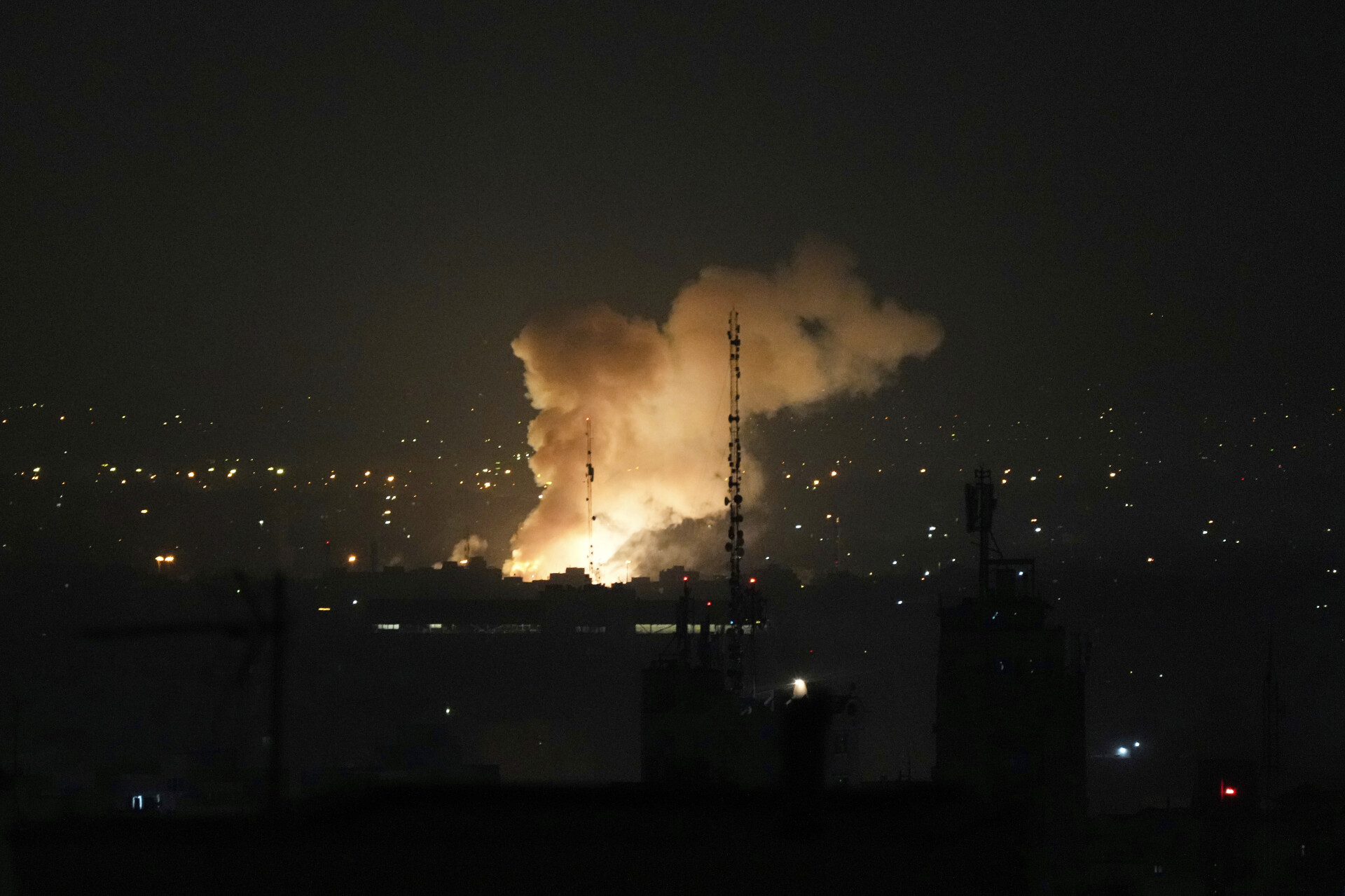
Smoke rises up after an explosion in Tehran, Iran, Friday, June 13, 2025. (Photo: CFP)
Israel carried out a sweeping and unprecedented military offensive against Iran's nuclear and military facilities on June 13 local time — a targeted operation that Israeli Prime Minister Benjamin Netanyahu said aims "to roll back the Iranian threat to Israel's very survival."
Experts told GDToday that recent signals from U.S. President Donald Trump may have emboldened Israel's decision to launch this attack, a move likely to disrupt ongoing nuclear talks and further escalate tensions across an already volatile Middle East.
In the early hours of June 13, explosions rocked several Iranian cities, including the capital Tehran, after Israel launched operation Rising Lion, striking what Netanyahu called "the head of Iran's nuclear weaponization program" and its ballistic missile development sites. Israeli officials claimed that top nuclear scientists and senior military leaders were targeted.
Photos and videos showed what appeared to be apartment buildings damaged or engulfed in flames, along with wounded residents, according to Iranian state media.
"This operation will continue for as many days as it takes to remove this threat," Netanyahu declared in a televised address.
Iran's Supreme Leader Ali Khamenei warned that Israel will face "severe punishment" for the attacks and confirmed that a number of Iranian commanders and scientists had been killed. A spokesman for Iran's armed forces stated that both the U.S. and Israel would "pay dearly."
The United States, which claimed it was not involved in the strikes, withdrew non-essential personnel from locations around the Middle East shortly before the attacks erupted, a move experts told GDToday signaled Washington's awareness of Israel's intentions.
A green light from Washington?
Professor Li Shaoxian, director of the China-Arab States Research Institute at Ningxia University, said Israel has long wanted to cripple Iran's nuclear capability but was previously restrained by Washington's opposition.
"Under Biden, Israel was explicitly told not to touch Iran's nuclear facilities. But Trump's approach was different: he used the threat of an Israeli strike as leverage to pressure Iran in negotiations," Li explained.
According to Li, this shift effectively opened the door for Israel to act: "Trump's ambiguous stance objectively encouraged Israel to go ahead. And the U.S. evacuation in the region strongly suggests they knew an attack was imminent and wanted to avoid being dragged directly into it."
"Washington hopes Israel's strikes will pressure Iran into making concessions while avoiding an all-out war that drags America into direct fighting," said Professor Wang Jin, director of the Israeli Studies Program and Center at China's Northwest University.
Li added that the timing — just days before the next round of U.S.-Iran nuclear talks in Oman on June 15 — was no coincidence. "Israel wanted to hit Iran before any potential deal could be made that they see as a dangerous compromise," he said. "This attack now makes it highly likely that the planned negotiations will collapse or be postponed indefinitely."
Iranian Defense Minister Aziz Nasirzadeh warned on June 11 that if the nuclear talks with the U.S. fail and conflict breaks out, the U.S. would be "forced to leave the region."
"In that case, the U.S. will have no choice but to leave the region, as all of its bases are within the reach of the Iranian military and they will not hesitate to target all of them in their host countries," Nasirzadeh said.
Risks of a wider conflict
Iran's leadership has vowed to retaliate against both Israel and the U.S., accusing Washington of supporting strikes on civilian areas.
"How Iran assesses its losses will determine the scale of its response," Wang said. "If Tehran judges the damage as a serious provocation, the retaliation will be fierce."
Wang noted that Iran's response will likely mirror its missile attacks in April and October 2024, targeting Israeli military sites, but he expects this round to be even more intense than last October's strikes.
On October 1, 2024, Iran fired nearly 200 projectiles at Israel in response to deadly Israeli attacks in Gaza and Lebanon, as well as the assassinations of top IRGC, Hamas, and Hezbollah leaders.
Analysts warn the situation could push the Middle East into its most dangerous crisis in years. Tensions were already high amid ongoing hostilities involving Israel, Palestine, Yemen's Houthis, and Lebanon's Hezbollah.
"The region was on edge," Li said. "If Iran retaliates strongly and Israel strikes back again, the U.S. could get pulled in despite its efforts to stay out. The next few days will be critical to watch."
Israel has declared a state of special emergency, closing its airspace, shutting schools, and banning social gatherings and non-essential work as it braces for possible incoming Iranian strikes.
Reporter | Liu Xiaodi
Editor | Yuan Zixiang, James, Shen He
















